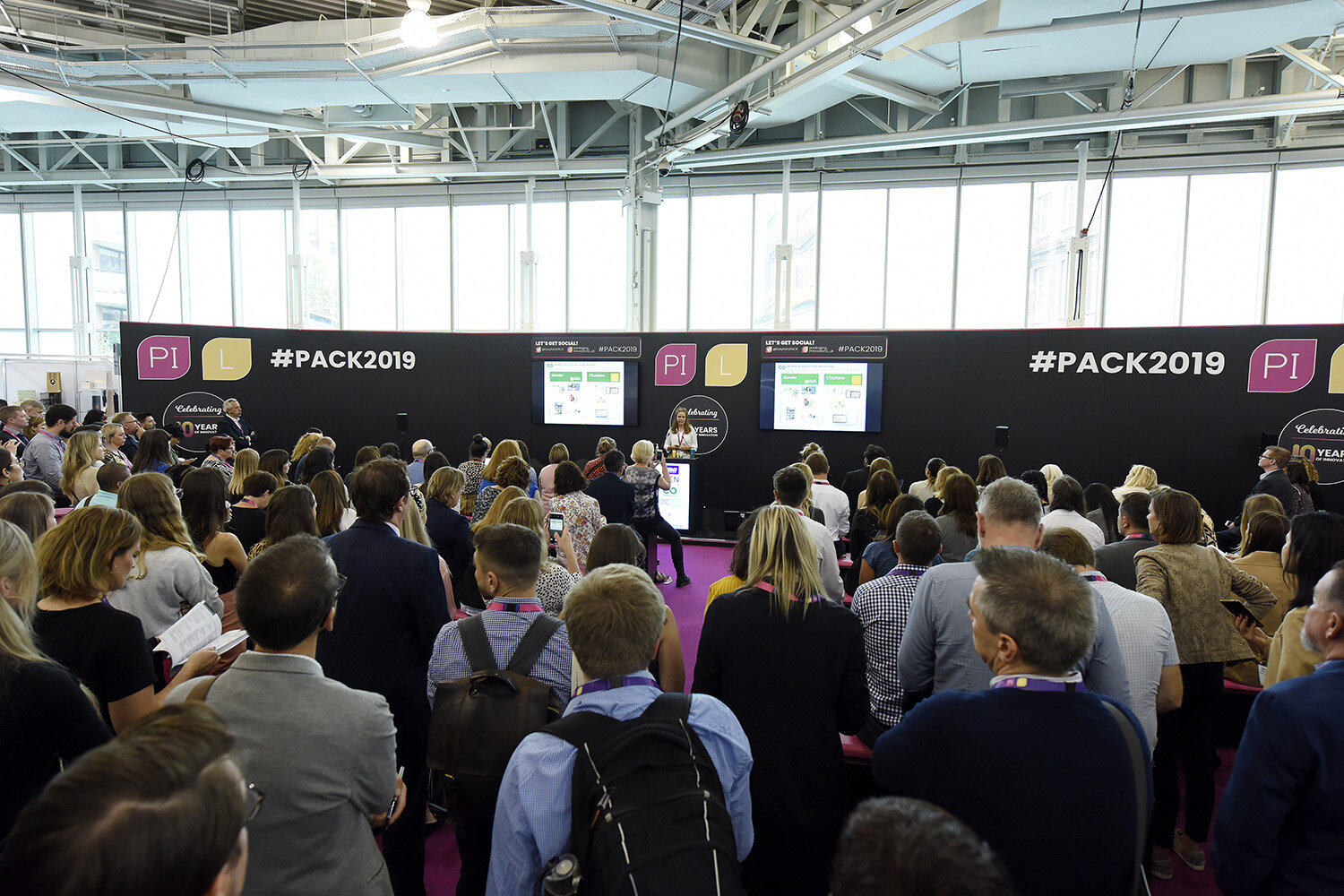Beauty Forum 2019: Working towards a Sustainable Future
Caroline Fréry, VP Business Development, Terracycle opens Beauty Forum Olympia 2019
Since chairing the Beauty Forum NEC at Packaging Innovations in February 2019, there have been significant steps made by the beauty industry to address the urgent issue of packaging waste.
But is the beauty industry doing enough?
Personally, I think it will need more than a few niche brands adopting greener practices to instigate change. What’s needed is for the big brands to get on board and take the lead in change, making sustainable packaging a priority - not just for a few products but across their whole portfolios. Guerlain and TerraCycle’s recycling solution through John Lewis stores for its iconic Terracotta bronzer is admirable, but what about the rest of the Guerlain cosmetics range?
David Attenborough’s Blue Planet II proved to be the tipping point in raising consumer awareness about the health of our planet. Since then, consumers have become so much better informed about sustainability issues and they expect change - but many feel change isn’t happening fast enough.
The will is there, but often the packaging is what lets the product down. How many times have you wanted to throw a used cosmetic item into the recycle bin, only to realise that parts of it are made from materials that cannot be recycled? What to do? Throw it into landfill along with 70% of waste that comes from beauty packaging? It’s a dilemma that faces us all because the infrastructure doesn’t yet exist to allow us to recycle used packaging with the confidence that it will be recycled, and not sent to overflowing landfill sites somewhere in South East Asia.
Beauty Forum Olympia September 2019
Fortunately, it’s not all doom and gloom, as I learned from the speakers at last week’s Beauty Forum, Olympia, London. It was the biggest attended yet by beauty industry professionals , eager to hear the latest packaging initiatives and take part in a Q&A with speakers from across the beauty spectrum.
Caroline Fréry is VP business development, TerraCycle, a global leader in recycling that has been working with several beauty multinationals, including L’Oreal Garnier, on their non recyclable packaging. TerraCycle is also installing drop off points in branded stores, including The Body Shop (since May 2019) to encourage customers to return their empty beauty packaging in 600 stores worldwide.
“There are no technical issues in recycling items which cannot currently be recycled. It’s about economics,” stated Fréry. “Anything can be recycled if the infrastructure exists to do so.”
TerraCycle’s newest initiative is LOOP, introduced early in 2019, that addresses the idea of reusability. The benefit to the consumer is they don’t need to recycle packaging when a product runs out and that they can obtain refills at a reduced price. The benefit to the environment is immeasurable.
The refill approach is one taken by Will King, founder, King of Shaves, for his soon-to-be-launched Code Zero toiletries range. “We’ve lost the consumer mentality of reuse. Consumers want it all and they want it now,” he stated.
While King of Shaves products have all been highly recyclable since 1996, King is hoping to break new ground with Code Zero, a lifetime use, refillable brand, launched on a platform designed for the circular economy, dubbed #CECOMMERCE. King is passionate about this approach, stating that refillable is more sustainable than recyclable disposable packaging, “69-99% of plastic volume is not recycled,” he revealed.
Arnaud Meyselle, ceo, REN Clean Skincare’s mission is to make his brand Zero Waste by 2021. He intends to achieve this by ensuring that all REN packaging is either recyclable, recycled or can be reused. An example is a joint REN/ TerraCycle initiative for Atlantic Kelp and Magnesium Body Wash, manufactured in an ocean plastic bottle, consisting of 20% plastic reclaimed from the ocean and 80% recycled plastic, with a metal -free pump (metal pumps being a particular bugbear for would-be recyclers everywhere).
Arnaud Meyselle, CEO, REN Clean Skincare
Meyselle recognises that compromises to the pristine white used by so many beauty brands will have to be made, but that consumers will not mind if it’s done with sustainability in mind. For example, Clean Screen Mineral SPC30 uses a 100% PCR* cap, which by necessity is grey, but manages to look stylish against the bright yellow tones of the tube.
Any company determined to “do the right thing” in sustainability terms will face challenges. Nowhere is it more acute than for small indie start-ups, such as BYBI, run by digital entrepreneurs Dominika Minarovic and Elsie Rutterford. “It’s a constant balance between ethics and performance,’ stated Rutterford, who invited members of the audience to join their Whataspp bulletin (07931082027) where the founders discuss the challenges of sustainability in beauty.
Dominika Minarovic and Elsie Rutterford, Founders, BYBI
“The industry isn’t keeping up with the needs of the brands. Where are the alternatives to metal pumps?” asked Minarovic. “So much plastic componentry is non-recyclable, yet the industry is crying out for recyclable solutions.” The BYBI founders hoped that by presenting at Packaging Innovations, the beauty industry’s most prestigious event, they will raise awareness for the plight facing indie brands.
Read more with Cosmetics Design Europe’s interview featuring Imogen Matthews:
“Sustainable beauty packaging ‘a bit piecemeal’ despite urgent need for change’”
August 2019
*Post Consumer Recycled
If you found the article of value, we’d love it if you’d share it with your favourite social networks.


